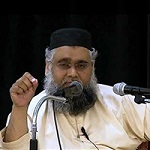Critical Thinking and Problem Solving
About the Course
This course is a hands‐on course designed to impart education in the foundational methods, techniques and skills of thinking and problem solving related to Islamic religious studies, social sciences and beyond. it is not about any thinking. It is about those kinds of thinking that take conscious effort, and which can be done well or badly. Most of our thinking takes little or no conscious effort. We just do it. You could almost say that we think without thinking! Students will examine and be practically exposed to the main components of critical thinking and problem solving with an Islamic slant i.e., scholarly skills, attitudes, behaviours and moral etiquettes. Once equipped with this knowledge set, and skills, participants would be well‐placed to be able to problem solve in all settings and critically analyse texts, literature as well as debate. In addition to their application in an academic setting, many of the methodologies discussed in this course will be similar to those deployed in professional critical thinking environments and beyond, as this course will present Islamic philosophies around knowledge and thinking skills.
Teaching methods include readings, lectures, group discussions, exercises, and assignments. Lectures are designed such that ensure greater scholar participation. Students will be provided with the opportunity to apply their learning to a subject matter of their own choice in the field of Islamic studies, while increasing awareness about various types of resources that will be of use during the course of their studies. There will be activities and discussion topics to prompt and encourage reflection on thinking and reasoning themselves.
Read more
Lecturers
Main Modules

1. Introduction
- About this course
- Categories of higher-order thinking Introduction to Reasoning
- Introduction to Creativity
- Introduction to Reflection

2. Islamic Theoretical Model for Critical Thinking
- Idea of Ijtihād
- Tadhakhur (Summarising)
- Ta’qīl (Synthesizing)
- Tafakkur (Prediction)
- Tafqīh (Analysing)
- Tadabbur (Judging Ideas)

3. Thinking and reasoning
- Thinking as a skill
- An introduction to critical thinking
- Solutions not problems

4. Critical thinking: the basics
- Claims, assertions, statements
- Judging claims
- Argument
- Identifying arguments
- Analysing arguments
- Complex arguments
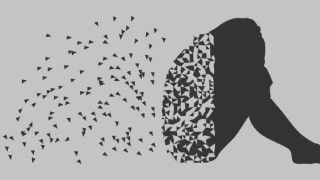
5. Reasons, Assumptions, Flaws and fallacies
- Reasons
- Assumptions
- Flaws
- Fallacies

6.Problem solving: basic skills
- What do we mean by a ‘problem’?
- How do we solve problems?
- Selecting and using information
- Processing data
- Finding methods of solution
- Solving problems by searching
- Recognising patterns
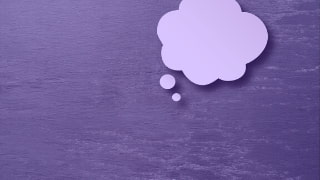
7. Hypotheses, reasons, explanations and inference
- Spatial reasoning
- Necessity and sufficiency
- Choosing and using models
- Making choices and decisions

8. Applied critical thinking (1)
- Inference
- Explanation
- Evidence
- Credibility
- Critical thinking and science

9. Applied critical thinking (2)
- Introducing longer arguments
- Applying analysis skills
- Critical evaluation
- Responding with further argument
- A self-assessment

10. Advanced problem solving
- Combining skills – using imagination
- Developing models
- Carrying out investigation
- Data analysis and inference
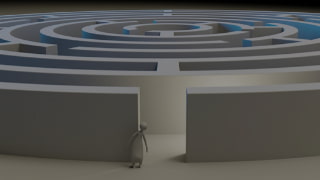
11. Problem solving: further techniques
- Using other mathematical methods
- Graphical methods of solution
- Probability, tree diagrams and decision trees
- Have you solved it?

12. Critical reasoning: Advanced Level (1)
- Conditions and conditionals
- Soundness and validity: a taste of logic
- Non-deductive reasoning
- Reasoning with statistics
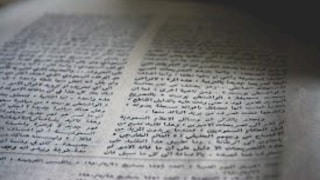
13. Critical reasoning: Advanced Level (2)
- Decision making
- Principles
- An argument under the microscope
- Critical writing
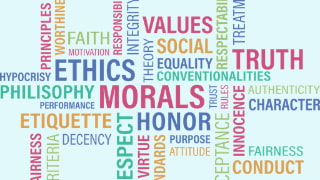
14. Islamic Etiquettes and Attitudes in Dialectics and Argumentation
- Defining Jadal and Munāẓara
- Good and Bad Dialectics
- The Miʿyār of Munāẓara
- Ādāb of Munāẓara
Modules
Who is it for ?
This course is a hands‐on course designed to impart education in the foundational methods, techniques and skills of thinking and problem solving related to Islamic religious studies, social sciences and beyond. it is not about any thinking. It is about those kinds of thinking that take conscious effort, and which can be done well or badly. Most of our thinking takes little or no conscious effort. We just do it. You could almost say that we think without thinking! Students will examine and be practically exposed to the main components of critical thinking and problem solving with an Islamic slant i.e., scholarly skills, attitudes, behaviours and moral etiquettes. Once equipped with this knowledge set, and skills, participants would be well‐placed to be able to problem solve in all settings and critically analyse texts, literature as well as debate. In addition to their application in an academic setting, many of the methods
discussed in this course will be similar to those deployed in professional critical thinking environments and beyond, as this course will present Islamic philosophies around knowledge and thinking skills.
Teaching methods include readings, lectures, group discussions, exercises, and assignments. Lectures are designed such that ensure greater scholar participation. Students will be provided with the opportunity to apply their learning to a subject matter of their own choice in the field of Islamic studies, while increasing awareness about various types of resources that will be of use during the course of their studies. There will be activities and discussion topics to prompt and encourage reflection on thinking and reasoning themselves.


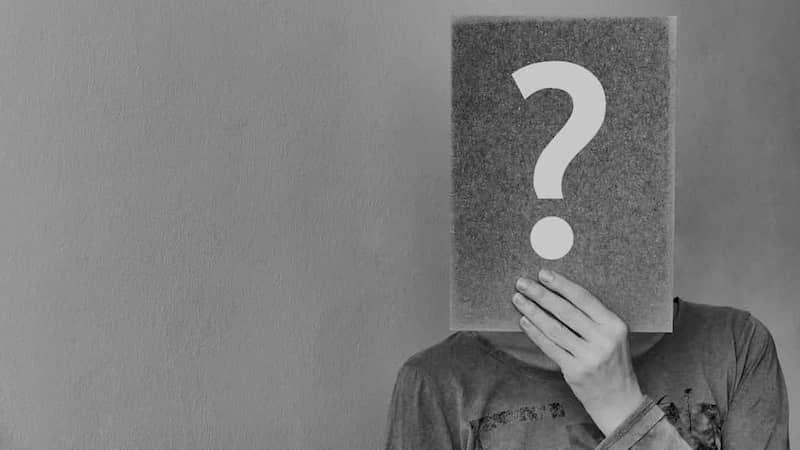
Key Objectives
The primary objective of this course is to develop thinking and dialectical skills amongst Muslim scholars and students generally, and to acquaint them with critical thinking and problem solving. Specifically, the course aims at introducing them to the basic concepts used in critical thinking and problem solving and their approach from an Islamic perspective and focussed on Islamic studies subjects. It includes broad discussions on dialectics, logic and ādāb.
At the end of this course students will be rounded in their ability to critically analyse and problem solve well and present their work with value and impact. Students will:
- develop understanding of the basic framework of critical thinking and problem solving.
- develop an understanding of various critical thinking and problem solving techniques.
- develop an understanding of the Islamic ethical dimensions of critical thinking,dialectics and problem solving
- Appreciate the components of Islamic scholarly writing and evaluate its quality.
Frequently Asked Questions
Are Al Balagh courses recognised or accredited?
Al Balagh courses do not provide an externally accredited or recognised qualification. Our own expert team works at the course content. With over 5000+ learners, we are continuously growing and our vision is to make Al Balagh qualifications renowned worldwide through our expert team, without seeking formal accreditation or recognition from external institutional bodies.
How is this online course structured?
Our online course comprises live interactive online sessions, pre-recorded videos, online course material that include, presentations, reading material & online learning activities. Students may ask questions and get their doubts cleared from their respective lecturers, if any. Our dedicated academic support team will assist you as required.
When will I have access to the online course material?
Upon successful enrollment, you will get access to myAlBalagh (our online learning portal) within 24 hours.
Will I get notification for live sessions?
All students will receive notification for their course live sessions via email and/or course WhatsApp group. You may also check the Course Schedule tab on your dashboard after logging in on our website or Mobile App
Is it mandatory to attend live sessions?
We always encourage attending live sessions among students, but it is not compulsory for technical course progress of the students.
I missed a live session. Can I get the video recordings?
If you are unable to attend a live session or have missed it, you can view recorded sessions on your course dashboard. You can access all the completed Recordings, PPT and assessments anytime
.
Can I download the recordings and watch it offline?
You can download recordings and PPT of the course sessions from the myAlBalagh mobile App for all the enrolled courses.The recordings will be available for students after 48 hours of the live session.
Do I get marks for watching course recordings and presentations?
There are no additional marks for watching the course recordings. Only the module Assessments and the final exam add up to the final score.You can check the individual scores of your Assessments under the Progress tab of myAlBalagh.
I have doubts but I cannot attend the live session. Any other way to ask my questions?
You can discuss your doubts via Course WhatsApp Group dedicated for student discussion or access the Discussion board on myAlBalagh. It is a platform for you to ask questions, discuss and get your doubts cleared.
When will the final exam be held?
The Final Exam will be held at the end of the course and will be a graded and timed exam.
How do I interact with my classmates?
You can interact with your classmates on our Whatsapp Group exclusive for the course students. Furthermore, you can use the Discussion Board to connect with other course students as well.
How long will I have access to the online course?
You will have access to the online course content for up to 2 years. If you want lifetime access, contact our admin team via Email at [email protected]
I am facing trouble signing into the “myAlBalagh” Online Student portal. What should I do?
In case you find any trouble accessing your account, then please contact us immediately. Our dedicated support team will ensure that your problem gets resolved at the earliest.
How can I apply for the Al Balagh Scholarship?
Al Balagh Academy values seekers of knowledge more than anything. Please visit our here to apply for a scholarship. Our team will assess your application and respond in 2-3 working days.
Learn More About Our Courses?
Discuss your opinion with one of our friendly advisers


